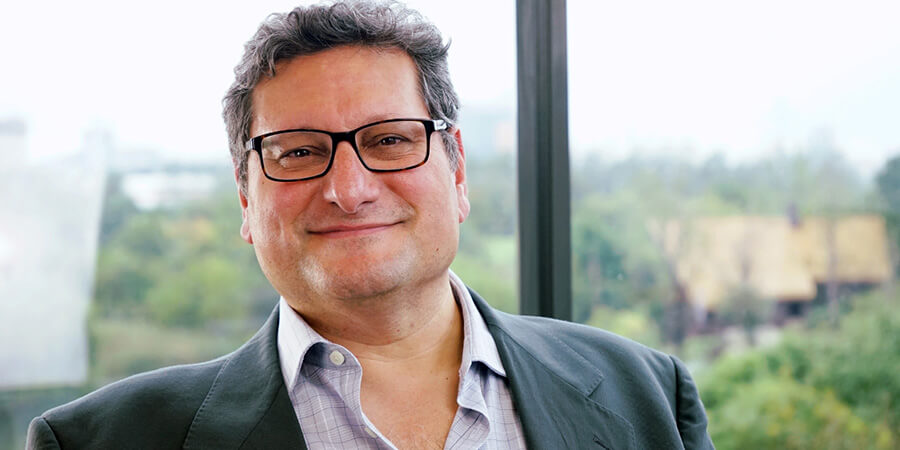In a wide-ranging interview with Telecom Review, Ibrahim Gedeon, chief technology officer of Canadian telecom provider, TELUS, talked up the company's role in making 'generational investments' for Canadians such as rolling out fiber and preparing for 5G. Gedeon, recognized by Telecom Review as 'Industry CTO of the Year' in 2017, also shared his perspective on what makes an effective chief technology officer.
What makes an effective CTO in your opinion?
A CTO is like an early warning system. If effective, you can predict a shift or wave and ride it. To be an effective early warning system and predict the technologies coming and investments needed, you require a few things.
- Applied technical skill: Knowing the environment in which your team operates and understanding how technologies evolve is a key ingredient to not only supporting your team to be efficient and build better products, but can also be leveraged to help predict and anticipate future technologies and the course of evolution, or even better, revolution.
- Understand your customer and know what they need. If you empathize with your customers, you can help your team develop better products and services that strike at the right time.
- Good communications skills: A CTO needs to relate and help different types of people understand the vision in their large network. Whether you're talking with a CEO, vendor, co-op student or government, they will all have unique perspectives and language they use to talk about the same subject, like 5G for example.
- Think strategically, take risks and encourage innovation. Back to being a tsunami early warning system, a CTO's role is to understand when technologies and industries are shifting to help our organizations focus on our overall direction and ensure we have a leading edge to maintain our margins and profitability. Sometimes that means taking big, calculated risks as early adopters to help jump to the next level. Sometimes that means understanding when certain technologies are not ready for mainstream consumption. In other instances it may mean learning from mistakes and taking the investments made and repurposing them elsewhere.
- Overall, if a CTO has technical chops, can communicate well and see the bigger picture from the perspective of the customers, they can effectively lead and inspire their teams to innovate and build a promising future for their customers and shareholders.
As CTO of one of Canada's leading telecom providers, what technologies are you most focused on being able to deliver to customers in the near future?
Currently, we're heavily focused on making a generational investment for Canadians by rolling out our fiber build. We're already halfway through our multi-billion fibre build across Alberta, British Columbia and Quebec. This extensive fiber build goes hand-in-hand with our continuous investment in 4G and 5G technologies to provide our customers with a consistent, reliable and high throughput broadband connectivity.
We also foresee the future of our network driven by network virtualization. While we continue to focus on providing world-class connectivity to Canadians, we are also expanding beyond the traditional carrier frontiers by investing in revolutionary value-added services such as our TELUS Health Exchange and Global Mobile Connectivity. We have designed these services to enable a partnership ecosystem that enables other players to bring their ideas and innovation to improve the quality of life of our customers and Canadians.
With 5G on the horizon, what are the main opportunities you think the next generation technology will bring to the industry?
With 5G comes a massive opportunity to significantly expand digital healthcare services globally and empower people to manage their own health outcomes through services, such as our TELUS Health Exchange communications platform and marketplace. I also see 5G bringing an explosion of connectivity for IoT devices that enable the smart home, smart city, wearables, autonomous vehicles and countless other possibilities that are being dreamt right up now.
What are the biggest challenges facing telecom operators today in rolling out 5G?
In my mind, successfully rolling out 5G all comes down to whether telecom operators can:
- Get the cost right - can we create efficiencies through automation to scale where we need to.
- Get the resources to build - whether spectrum or fiber.
- Get the right services to run on top - without these we're just building bigger, better pipes.
What advice would you give to operators that are struggling to generate new revenue streams as they compete against OTTs and other disruptive players?
When attempting to generate new revenue streams, take a holistic look at your business. Be open to partnerships and collaborations with over-the-top providers and best-in-class telecom operators. Don't think in terms of traditional borders or verticals as our worlds are converging. Consider entering new industries that naturally lend themselves to be supported by operators, such as digital health or banking with mobile connectivity, identity protection, just to name a few.
Finally, can you share some of your goals for 2018, and discuss some of TELUS' recent moves, such as the acquisition of AlarmForce and what that will bring to the company?
For 2018, it's all about connectivity meets services meets content for our customers on our award-winning network. If we can execute well on those areas, the sky's the limit. On a more personal level, I'm looking forward to focusing on my team's learning and development as we make a shift to a more virtualized world. It's an exciting shift in the way we do work and I think we have a great culture of learning and improvement at TELUS.
To answer your question about AlarmForce, it brings a unique opportunity to leverage our robust fiber and wireless networks and expertise to continue to enhance connected home, business, security and health services for their customers. As part of our overall strategy, we'll continue to focus on our customers' needs as we look to improve health outcomes, promote educational opportunities, and support our environment and communities, while also enabling security and protection.










